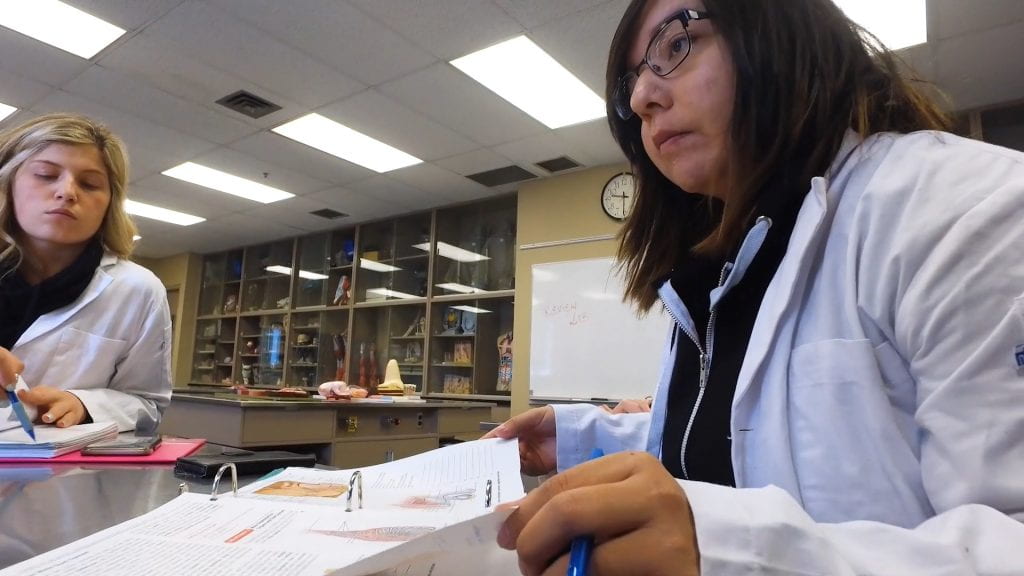New partnership with First Nations groups results in program to enhance health care in remote communities
Red River College, Manitoba Keewatinowi Okimakanak Inc. (MKO) and Keewatinohk Inniniw Minoayawin Inc. (KIM) have partnered to deliver a new modular training program that will bring tailored education and career opportunities to northern Manitoba First Nations communities, while transforming the future of health care in the north.
Two years ago, the First Nations Inuit Health Branch (FNIHB) approached RRC to create a solution to address an important gap in the north. Together, FNIHB, MKO/KIM and RRC designed the Diagnostic Support Worker Applied Certificate program to enhance accessibility to health-care services for remote First Nations communities.
The program, offered as four micro-credentials, will prepare students to practice diagnostic support skills as knowledgeable, competent and caring professionals. Focused in the community, the inaugural cohort that started on Nov. 2 will have the opportunity to learn and practice clinical skills closer to home. The program is completely sponsored by MKO/KIM.
“This program will make a considerable difference in creating a sustainable health-care network within northern Manitoba,” says RRC President Fred Meier. “Micro-credentials lend us much more agility, so we can really design education to respond to a specific need. It gives us a glimpse of the potential — as nursing stations in communities advance, so too can our training.
“It’s important that we, as a post-secondary institution, recognize the need to listen to the community, and respond to that need so we can be successful when creating new programs. This is a great example of how we foster relationships that seek to fill the gaps that exist within Indigenous communities.”
As Dr. Barry Lavallee, newly appointed CEO of Keewatinohk Inniniw Minoayawin Inc., explains, First Nations leaders have long been asserting the need for trained health-care professionals from within their own communities.
“The DSW program is one of many programs we are working to co-create that will support local workforce development through education and job creation, and in fact is one of the key transformative objectives of MKO and KIM,” Lavallee says.
After extensive consultation and surveying, FNIHB and MKO/KIM identified a need in First Nations communities to train local residents to work in community nursing stations, armed with a set of specific skills. Community outreach revealed that there would be a pool of prospective students interested in the program.
DSW is comprised of four micro-credentials: academic foundations, EKG, phlebotomy and radiographic procedures. The courses are delivered through a blend of online, in-class lab and clinical learning experiences. Designed to be flexible and learner-friendly, students can choose to take any number of micro-credentials at their own pace, after completing the academic foundations micro-credential. Students will be able to continue to add badges, or skills, as they progress throughout their career, or as the equipment in their community advances.
To create a program that would set students up for success and advance student achievement, MKO/KIM and RRC included a number of factors in the planning, such as assessing the needs of nursing stations and ensuring students would have access to reliable Internet during their studies.
Instructors all received cultural awareness training, which included RRC’s Blanket Exercise and the Four Seasons of Reconciliation. Students will also have access to all the supports RRC offers, including access to Indigenous supports and Elders-in-Residence. Students will graduate from the pilot year of the program in early Fall 2021.

